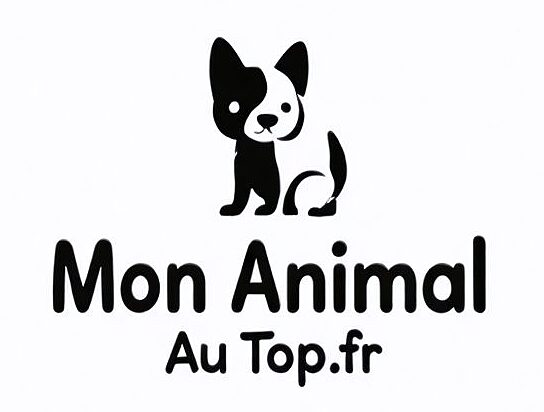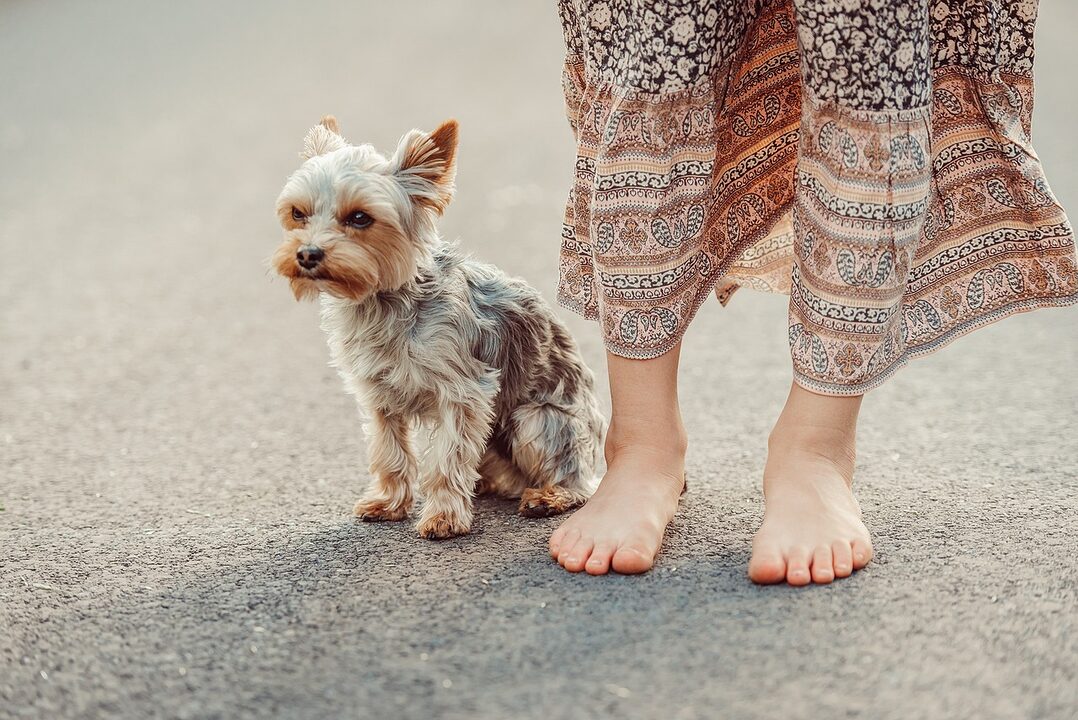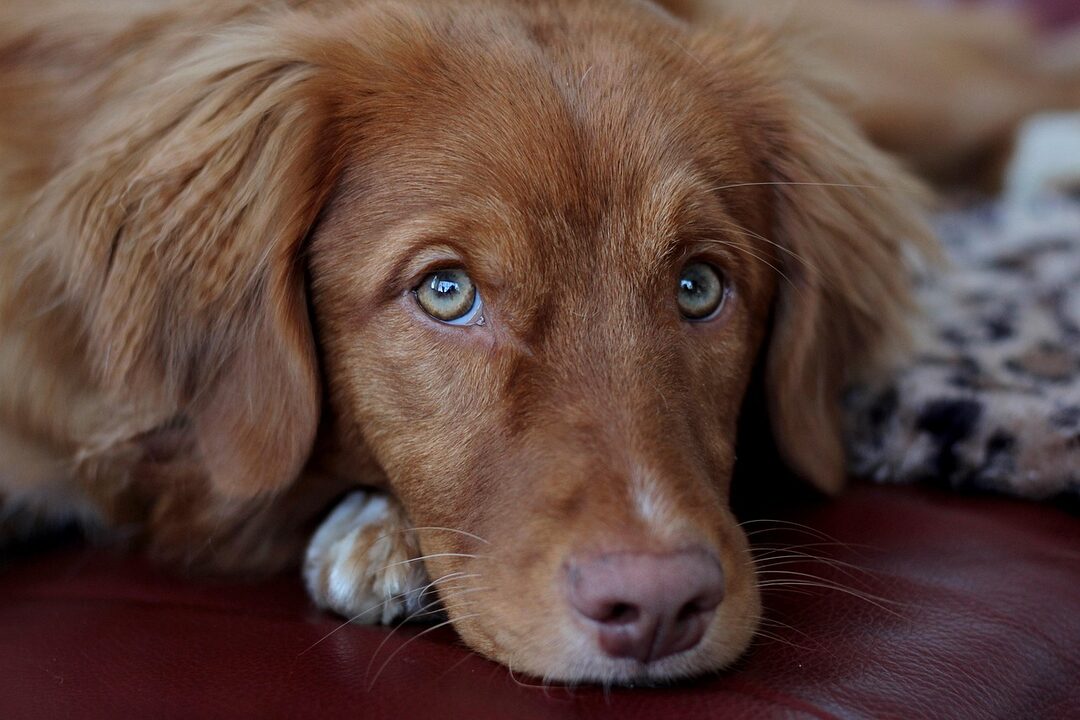All about dog breeds: distinctive traits, necessary care and behaviors
Everything You Need to Know About Dog Breeds
Dog breeds are fascinating and showcase a great variety of distinctive traits that influence their behavior, appearance, and specific needs. Understanding these characteristics is essential for choosing the ideal companion and meeting their care requirements. Whether it’s a vigilant German Shepherd or an affectionate golden retriever, each breed has its own requirements regarding training, exercise, and well-being. By familiarizing yourself with these aspects, you will be better prepared to establish a harmonious relationship with your dog.
Comparison of Distinctive Traits, Care, and Behaviors of Dog Breeds
| Dog Breed | Origin | Character | Health | Diet | Price | Care |
|---|---|---|---|---|---|---|
| Labrador Retriever | Canada | Affective, playful | Robust, hips to monitor | Balanced, controlled portions | 800–1500€ | Regular brushing, daily exercise |
| Golden Retriever | United Kingdom | Docile, sociable | Joint fragility | Balanced diet | 900–1500€ | Frequent brushing, playful activities |
| German Shepherd | Germany | Faithful, protective | Sensitive hips and elbows | Rich in proteins | 800–1400€ | Brushing, firm and consistent training |
| English Bulldog | United Kingdom | Calm, friendly | Respiratory issues | Moderate, avoid overweight | 1200–2000€ | Care of folds, gentle walks |
| Beagle | United Kingdom | Playful, curious | Monitor ears | Balanced, controlled | 800–1500€ | Light brushing, mental exercises |
| Poodle | France/Germany | Intelligent, elegant | Few problems, dental care | High quality, size-appropriate | 800–1800€ | Regular grooming, mental stimulation |
| Rottweiler | Germany | Protective, confident | Joints, obesity | Rich in proteins, monitor weight | 900–2000€ | Strict training, sporting activity |
| Yorkshire Terrier | United Kingdom | Bright, affectionate | Delicate teeth and kneecaps | Small portions, quality food | 800–1500€ | Careful grooming, moderate walking |
| Boxer | Germany | Playful, protective | Possible heart problems | Balanced, monitor growth | 1000–1800€ | Simple brushing, sustained activity |
| Dachshund | Germany | Determined, playful | Fragile spine | Controlled portions, avoid overweight | 800–1500€ | Light brushing, avoid excessive jumping |
| Siberian Husky | Russia | Energetic, independent | Robust, needs exercise | Rich in proteins, balanced | 900–1800€ | Frequent brushing, daily sports |
| Chihuahua | Mexico | Bright, protective | Fragile teeth, fontanel | Small rations, appropriate | 800–1300€ | Dental care, moderate walking |
| Great Dane | Germany | Kind, imposing | Joints, stomach torsion | Fractioned rations, high quality | 1200–2000€ | Large spaces, gentle exercises |
| Doberman | Germany | Vigilant, loyal | Cardiomyopathy, sensitive skin | Protein-rich, controlled | 1000–2000€ | Firm training, intensive sport |
| Shih Tzu | China/Tibet | Affective, calm | Sensitive eyes | Appropriate diet, not too rich | 800–1500€ | Regular grooming, eye care |
| French Bulldog | France | Playful, sociable | Fragile respiratory pathways | Controlled, avoid overweight | 1200–2000€ | Cleaning folds, moderate effort |
| Pomeranian | Germany/Poland | Bright, alert | Fragile teeth and kneecaps | Small portions, quality kibble | 1000–2000€ | Frequent brushing, moderate activity |
| Cavalier King Charles | United Kingdom | Kind, playful | Heart problems | Balanced, monitor weight | 1000–1600€ | Regular brushing, cardiac check-up |
| Shiba Inu | Japan | Independent, bright | Robust, skin allergies | Moderate, protein-rich | 1200–2000€ | Seasonal brushing, firm training |
| Bernese Mountain Dog | Switzerland | Calm, affectionate | Dysplasia, shorter life span | Rich, size-appropriate | 1200–2000€ | Frequent brushing, large spaces |
| Australian Shepherd | United States | Energetic, intelligent | Eye problems, hips | High quality, balanced portion | 800–1500€ | Brushing, intense exercises |
| Cocker Spaniel | United Kingdom | Playful, sensitive | Monitor ears | Balanced, avoid excess | 800–1300€ | Regular grooming, walks |
| English Bulldog | United Kingdom | Calm, affectionate | Breathing, sensitive skin | Moderate, avoid weight gain | 1200–2000€ | Cleaning folds, light activity |
| Pembroke Welsh Corgi | Wales | Bright, sociable | Back pain, overweight | Balanced, moderate portion | 800–1500€ | Seasonal brushing, exercises |
| Border Collie | United Kingdom | Very intelligent, energetic | Generally robust | Rich in proteins | 700–1500€ | Brushing, strong mental stimulation |
| English Springer Spaniel | United Kingdom | Playful, obedient | Ears, eyes to monitor | Premium quality, medium portion | 800–1300€ | Regular grooming, daily exercise |
| Boston Terrier | United States | Joyful, affectionate | Sensitive respiratory pathways | Balanced, attention to weight | 800–1500€ | Eye care, gentle walks |
| Maltese | Mediterranean | Bright, docile | Monitor teeth and eyes | Small portions, high quality | 800–1500€ | Important grooming, moderate activity |
| Bichon Frise | France/Belgium | Playful, cheerful | Sensitive skin, allergies | Appropriate, balanced diet | 800–1200€ | Frequent grooming, skin care |
| Weimaraner | Germany | Energetic, loyal | Bone diseases, stomach torsion | Rich in proteins, fractioned portions | 900–1500€ | Intensive exercise, light brushing |
| West Highland White Terrier | Scotland | Bright, independent | Sensitive skin, allergies | Controlled, avoid overweight | 800–1500€ | Brushing, skin care |
| Staffordshire Bull Terrier | United Kingdom | Energetic, affectionate | Few major problems | Balanced, protein-rich | 800–1500€ | Regular exercise, firm training |
| Alaskan Malamute | Alaska (U.S.) | Strong, independent | Needs space, dysplasia | Energetic, rich in proteins | 1000–1800€ | Abundant brushing, high activity |
| Saint Bernard | Switzerland/Italy | Gentle, devoted | Dysplasia, stomach torsion | Rich, fractioned portions | 1200–2000€ | Brushing, large spaces |
| Newfoundland | Canada | Calm, gentle | Cardiac, hips | High quality, monitor weight | 1200–2000€ | Sustained brushing, enjoys swimming |
| Chow Chow | China | Calm, reserved | Delicate skin and eyes | Balanced, avoid overweight | 1000–2000€ | Regular brushing, fold care |
| Samoyed | Russia/Siberia | Joyful, sociable | Robust, joints to monitor | Rich in proteins | 1000–2000€ | Intensive brushing, needs exercise |
| Jack Russell Terrier | United Kingdom | Energetic, clever | Overall healthy, attention to joints | Limited portions, quality food | 600–1200€ | Active walks, light brushing |
| English Greyhound | United Kingdom | Calm, fast | Little fat, sensitive to cold | Rich in proteins, moderate | 700–1300€ | Fast exercise, warm resting |
| Whippet | United Kingdom | Bright, gentle | Few problems, attention to cold | Balanced, moderate portion | 700–1200€ | Quick walks, comfortable bedding |
| Rhodesian Ridgeback | Southern Africa | Protective, calm | Dysplasia, thyroid | Rich in proteins | 900–1800€ | Light brushing, regular exercise |
| Dalmatian | Croatia | Energetic, sociable | Urinary issues, deafness | Hydration, light purine diet | 800–1500€ | Brushing, long walks |
| Bull Terrier | United Kingdom | Playful, willful | Skin allergies, possible deafness | Balanced, no excess | 900–1600€ | Early socialization, exercises |
| Cane Corso | Italy | Protective, calm | Joints, dysplasia | High quality, controlled portions | 1000–2000€ | Firm education, large space |
| Akita Inu | Japan | Proud, independent | Skin, hips to monitor | Rich in proteins, moderate | 1000–2000€ | Seasonal brushing, socialization |
| Belgian Malinois | Belgium | Hardworking, energetic | Robust, attention to joints | Protein-rich, appropriate portion | 800–1500€ | Intense exercise, mental stimulation |
| Havanese | Cuba | Playful, affectionate | Monitor eyes and teeth | Small portions, quality | 900–1500€ | Regular grooming, gentle walks |
| Scottish Terrier | Scotland | Independent, loyal | Sensitive skin, allergies | Balanced, moderate | 800–1500€ | Brushing, regular walks |
| Irish Setter | Ireland | Playful, kind | Bloating, dysplasia | Fractioned portions, high quality | 800–1500€ | Frequent brushing, sporty activity |
| Leonberger | Germany | Calm, affectionate | Cardiac, dysplasia | Rich, fractioned portion | 1200–2000€ | Sustained brushing, large spaces |
In the fascinating world of dogs, each breed has its own distinctive traits, care needs, and behaviors. Understanding these aspects is essential for choosing the ideal companion and ensuring they thrive in their environment. This article will guide you through the unique characteristics of several dog breeds, their care requirements, and their typical behaviors, aiming to foster a harmonious and fulfilling relationship between humans and dogs.
Distinctive Traits of Dog Breeds
The distinctive traits of dog breeds are primarily influenced by their origin and their initial function. For example, German Shepherds are known for their vigilance and intelligence, making them excellent guard dogs. In contrast, golden retrievers are distinguished by their affectionate nature and ability to interact with children, making them ideal companions for families.
Additionally, each breed presents specific morphological characteristics such as size, coat color, and ear shape. For instance, the Chihuahua is one of the smallest breeds, while the Great Dane is known for its imposing size. This diversity allows each owner to find the dog that matches their expectations and lifestyle.
Necessary Care by Breed
The care needs of dogs vary considerably from breed to breed. Factors such as size, coat type, and daily activity play a crucial role in the care needed. Long-haired dogs, like Collies, require frequent brushing to prevent tangles, while short-haired breeds, such as Beagles, need less maintenance.
It is also crucial to consider the specific diet for each breed, as some dogs may be prone to specific health issues. For example, the Beagle tends to gain weight and thus requires rigorous monitoring of its diet.
Typical Behaviors by Breed
The behaviors of dogs are also influenced by their breed. Some dogs, like Border Collies, are known for their intelligence and constant need for mental activity, making them exceptional working dogs. Others, like the English Bulldog, tend to be more relaxed and less inclined towards physical activity.
Understanding the specific behaviors of each breed allows for not only anticipating their needs but also promoting peaceful coexistence within the household. Dogs of certain breeds, like terriers, may have more pronounced hunting instincts, while others, like retrievers, are generally gentle and sociable with children.
Thus, training your dog while considering its distinctive traits and behavioral needs can help you establish a serene and respectful family atmosphere towards your four-legged companion.
To deepen your knowledge of dog breeds and their behavior, you can consult reliable resources such as this guide or this site dedicated to the distinctive traits of dog breeds, to better understand their diversity and optimize their training.
FAQ on Dog Breeds
What are the main characteristics that distinguish dog breeds? The distinctive characters of dog breeds include their physical appearance, behavior, and level of intelligence. Each breed has unique traits that can be identified.
How do I choose the dog breed that best suits my lifestyle? It is important to consider your environment, activity level, and the time you can devote to the specific needs of the adopted breed. Familiarize yourself with the characteristics of different breeds.
What types of care are necessary for each dog breed? Care needs vary between breeds. This may include grooming, exercise, and nutrition requirements. Learn about the specific needs of your breed to ensure optimal well-being.
Do dog breeds have particular personality traits? Yes, each dog breed has personality traits that can influence its behavior. For example, some dogs are naturally more sociable or protective than others.
Why is it important to understand the specific needs of each dog breed? Understanding a breed’s needs helps you offer a suitable environment, prevent behavioral issues, and foster a harmonious relationship between you and your companion.
Do recent dog breeds have different characteristics than ancient breeds? Yes, the evolution of breeds can lead to the emergence of new varieties with characteristics adapted to modern issues, notably animal welfare and health.
Are there dog breeds that require more exercise than others? Absolutely, some breeds, such as working or herding dogs, have higher exercise needs than others. It is crucial to be aware of these requirements to avoid undesirable behaviors.
How can I better understand my dog’s behavior? By educating yourself about your dog’s breed and its distinctive traits, you can better anticipate its behaviors and respond adequately to its needs.
Are all dog breeds dangerous or aggressive? No, most breeds are not aggressive by nature. A dog’s behavior primarily depends on its training, socialization, and environment.
Where can I find reliable information on dog breeds? Numerous resources, including books, specialized websites, and professional educators, provide detailed information on the various dog breeds and their characteristics.

































































